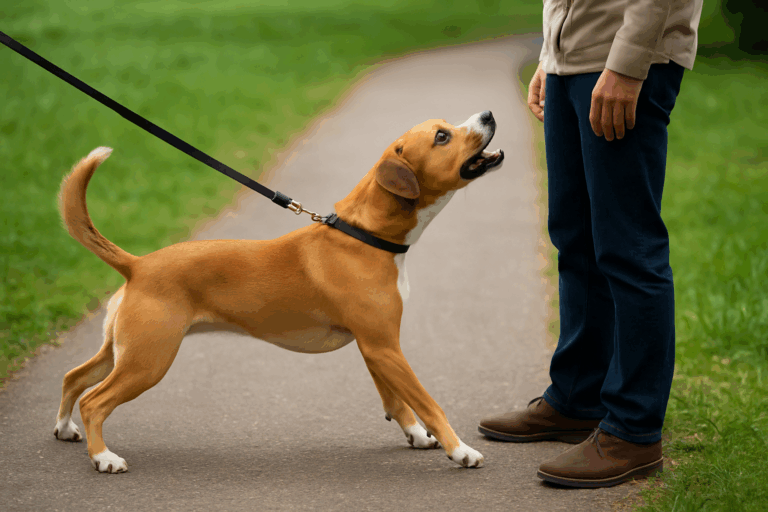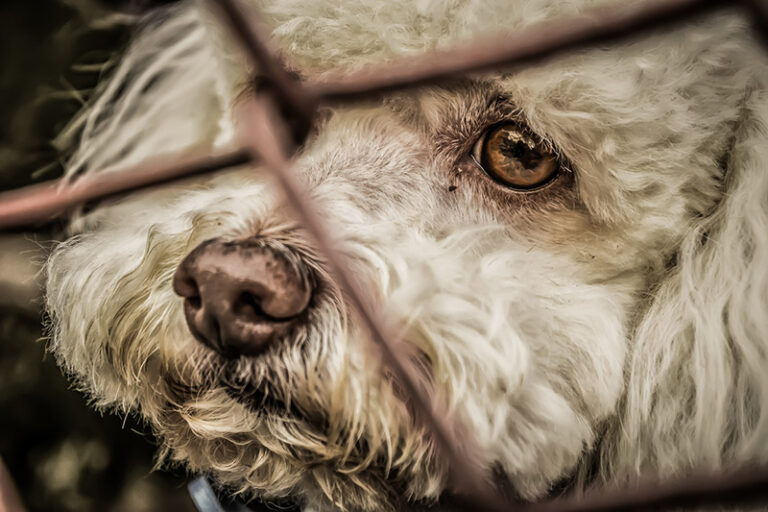Your dog licks your face, mouth, and whether you like it or not, there are several reasons to explain this behavior!
Licking is a natural behavior in dogs, ingrained from birth. The mother dog begins licking her puppies immediately after giving birth to clean them. This gesture is a way to show affection to her little ones, and the puppies respond by licking their mother’s muzzle to signal their hunger.
This ritualized licking behavior continues in dogs throughout their lives and serves as a means of communication to express various states and emotions.
Why does my dog lick me?
Affection
One of the common reasons why a dog licks is affection. Dogs lick their owners to demonstrate their attachment. This instinctive gesture is usually directed towards accessible parts of the skin, such as the face, neck, hands, arms, etc. Some dogs extend this practice to other people, including visitors, which can be uncomfortable for those not accustomed to the behavior.
Dogs may also compulsively lick their owner to get their attention.
Hunger
Licking can also serve to express hunger. A very young puppy will tend to lick its mother’s muzzle to let her know that it needs to eat, a reflex inherited from their wild ancestors who used this method to make the mother regurgitate and feed them. Consequently, it’s not uncommon for a puppy to lick its owner to indicate that it wants to eat.
Discomfort and the need for personal space
Licking can also be a warning from your dog that it does not want proximity. This behavior often goes hand in hand with a situation in which it does not feel free (being held too firmly) or because the human is approaching too closely or holding its mouth. In this case, it is a response to discomfort.
Not a sign of submission!
No, the dog does not lick you because it considers you its leader, superior, or to show submission.
Why do dogs lick each other?
Soothing
Self-licking can help dogs relieve stress and calm down when facing anxieties or tensions, in response to their owner’s stress, household tensions, or situations that terrify them, such as thunderstorms, unexpected noises, shouting, or any unfamiliar environment. Once again, this gesture comes from the mother. In fact, the mother dog licks her puppies to soothe and calm them, prompting the pup to replicate this behavior as it grows when it needs to soothe its stress.
Inter-canine communication
Dogs may lick other dogs as a way to initiate contact and social interaction. Wolves behave in the same way, as do many canines. Dogs may tend to lick another dog’s muzzle as a sign of appeasement or to indicate that they want to be friendly. And no, hierarchy has nothing to do with it! A dog does not lick another dog to submit or because it regards the other dog (or human) as its superior. This dominance theory, which has been scientifically discredited for decades, does not exist among wolves or dogs.
Exploration
Licking can be a form of exploration, similar to how young children discover the world by putting objects in their mouths. Dogs have a highly developed sense of taste, which explains why they often lick different smells.
Pain and behavioral issues
Finally, excessive licking can serve to relieve pain, although it should be avoided because a dog’s saliva contains bacteria that can cause infections. If a dog licks excessively and repeatedly, pulls out its fur, self-mutilates, it may indicate a behavioral disorder or a psychological distress, requiring a veterinary consultation or assistance from a dog behaviorist.
What to do?
Your dog uses its sense of smell and tongue, which is characteristic of them (among other things)! There’s nothing unusual about it; some dogs lick a lot, others less. Don’t worry, but if it bothers you, don’t hesitate to seek help from a positive reinforcement dog behaviorist who will encourage your dog to adopt a different behavior than licking to express interest, love, hunger, etc. Simply turning your head is often enough to discourage this behavior because that’s the attitude dogs adopt with each other when they don’t want any kind of contact. It’s crucial not to scold your dog when it licks. Your anger would serve no purpose. On the contrary, it would generate additional stress in the animal, who would not understand the reason of the yelling or intimidation, to the point of developing and exacerbating this excessive behavior, or even encouraging it to find other ways to express it.
In summary, licking in dogs is a multifunctional behavior used to express affection, hunger, stress, soothing, the need for attention, exploration, pain, and may sometimes indicate behavioral issues. This list is not exhaustive, and it is essential to understand the reasons behind each dog’s excessive licking to react appropriately and consult a professional if in doubt.
Sonia, your Dog Nanny



